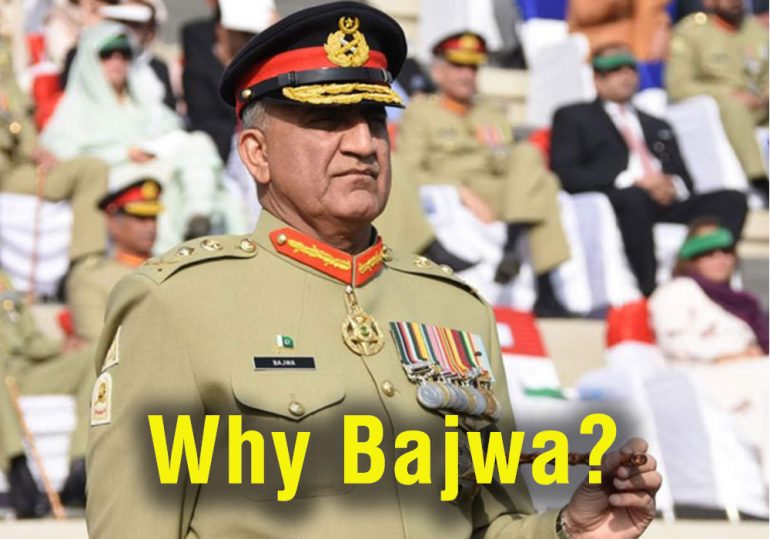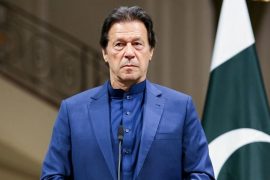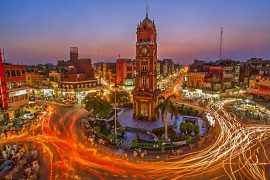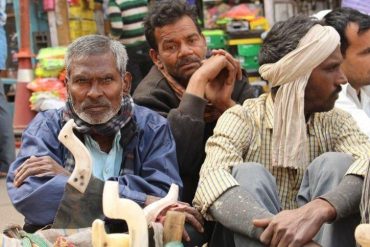STRAIGHT TALK by Hafeez Khan
The Chattering classes are in full swing fuelled by PML(N) media cell. Extension of General Qamar Javed Bajwa has got them going. The compromised and corrupt “Analysts” are going full throttle for sanctity of institutions and finding faults with Government’s Kashmir policy. The hypocrisy is mind blowing.
The “defenders” of institutions did everything in their power to subvert and subjugate them while in power. This holier than thou approach is ridiculous. They did not move a twig for Kashmir cause while in office. Their weapon of choice is bribery and coercion as exposed in the NAB judge’s tapes case. When the A/C is to be removed from Nawaz Sharif’s jail cell, importance of human considerations is supreme. To hell with the jail manual. Upon extension to the Army Chief they pick up the cudgels.
Retaining the same Chief only denies elevation of one 3 star General. Other promotions, retirements are unaffected and continue in routine. The critics need an electric shock. We are in a state of war, Pakistan is in turbulent and dangerous waters. Do you change your ship Captain in midst of a storm?
As a student of politics and history I have observed changes of Army Chiefs since Ayub Khan. In my view, unlike all other leadership positions in Pakistan, the personality of the Chief has a major impact on how the defence forces react to threats externally and interact with those in power internally.
A short journey into the past should enlighten the deviants. Upon independence in 1947, the command and control of top slot continued with the British. British Army Council appointed General Frank Messservy as the first Commander in Chief (CnC) on August 15th 1947. His term ended February 10th 1948. He was followed by General Douglas Gracey from February 11th 1948 ending January 16th 1951.
The first war of liberation of Kashmir started on 22nd October 1947 and continued till Jan 5th 1949. Tribal Lashkars originating in Waziristan supported by other tribals were able to liberate 1/3 of territories constituting Azad Kashmir. British General Gracey did not support this effort. A Pakistani led Army, at that point in history, would have been decisive in ending the struggle for a free Kashmir 72 years ago. The Chief Matters!
Gracey was replaced by General Muhammad Ayub Khan in 1951. The first Pakistani CnC was selected by Prime Minister Liaqat Ali Khan superseding many generals and overruling General Gracey resistance.
General Ayub Khan continued as CnC till October 1958. He took over as President in the 1st Military Coup and appointed himself as the first and only Field Marshall in Pakistan’s history. As CnC he got a taste of civilian rule when he was appointed Defence Minister and as Home Minister between 1953 to 1955. General Ayub must have picked up the vulnerabilities and fragility of parliamentarians, their back stabbing ways and lack of grass root support. It is surprising why he waited so long to take over! Impact of Chief’s personality.
General Musa took over as CnC in October 1958 and continued in that position till 1966. An Ayub loyalist, his tenure was uneventful, except the 1965 War. He was replaced by General Yahya Khan. Yahya earned laurels as Commander of famed Battle of Chowinda. His appointment was controversial. He imposed Martial Law in 1969 at the height of a popular uprising led by East Pakistan. His weakness for the bottle and fairer sex contributed to his convoluted rule. Some historians have recorded his domestic partners as General Rani and Noor Jehan! He is remembered for presiding over Pakistan’s dismemberment. Impact of Chief’s personality.
The title of the office changed in 1972 to Chief of Army Staff. General Gul Hassan, the 1st Chief after Yahya, was unceremoniously removed by Bhutto after 4 months. He was replaced by a lacklustre Bhutto loyalist General Tikka Khan on 3rd March 1972 to 1st March 1976.
Now the roller coaster ride started. Bhutto became President. He had popular support, Army was demoralized, Opposition in disarray. He governed with an iron fist for first 3 years. Then he lost his bearings. He abandoned his populist base, stepped into his comfort zone, the feudals, and tried to appease the Moulvis. All in pursuit of a 2nd term 2/3 majority.
He picked up General Zia ul Haq for his humbleness. Officer friends who had served under him shared tales of his simplicity. This one stuck in my mind. As Colonel Commandant in Kharian, he would ride his bicycle to officers club in the evenings. Park it prominently in front, while junior officers drove up in their cars. Sit around the bar till late at night sipping water while others consumed better things. The rest is history. When push came to shove and it was his neck under Article 6 or Bhutto’s, he made the obvious choice. Impact of Chief’s personality.
Zia left us all a parting kick, Nawaz Sharif. Zia’s death brought in rudderless General Aslam Beg as the Chief. Nawaz Sharif was in power when Beg’s successor General Asif Nawaz assumed office. A through professional, he stood up to NS. He suffered a heart attack under great stress and passed away. General Waheed Kakar followed, completing his term in 1996.
On 12th January 1996, General Jahangir Karamat became the Army Chief. A brilliant Armoured Corp officer, I had known him while he was posted in Saudi Arabia as head of Pakistani Brigade based in Tabuk. An astute intellectual, groomed in respectable surroundings he was no match to PM Nawaz’s rough and tumble Gowalmandi style politics. He quit office before completing his term. The impact of Chief’s personality.
Then Nawaz Sharif committed his first blunder. He appointed General Pervez Musharraf. This fearless commando refused to submit to Sharif’s pushy ways. Next 9 years is history. See the impact of Chief’s personality.
Fast forward to General Qamar Javed Bajwa’s appointment in November 2016 by Nawaz Sharif. NS misjudged again. While he thought he had appointed a personal loyalist, General Bajwa turned out to be loyal to Pakistan. A quiet low profile general, his priorities and Pakistan’s needs matched. He is an institution builder with no political ambitions. He built bridges from China to Middle East to Europe to USA. A brilliant tactician, he has severely damaged and downgraded terror networks. A realist with an eye on history, he has focussed on supporting all efforts to turn around Pakistan that was dramatically spiralling downwards under the Zardari Sharif combine.
Pakistan is in a happy place. After a long time all the institutional heads are pulling in same direction. Is this the time to disrupt Pakistan’s recovery from a grave anaemic condition? Continuity is what Pakistan needs with existential threats, especially Kashmir. This is when Chief’s personality really matters!!!





